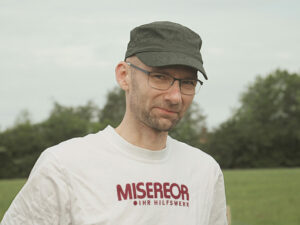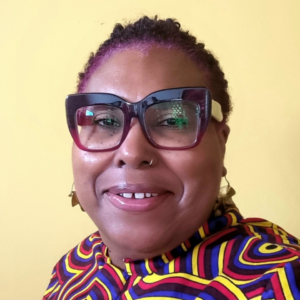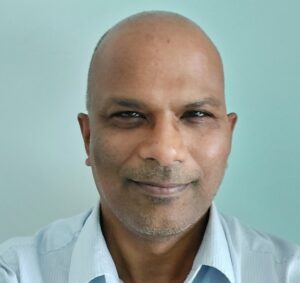Equity against hunger – CFS policy recommendations for equitable food systems of the future
Misereor e.V.
Bread for the World
Forum on Environment and Development
La Via Campesina
INKOTA-netzwerk e.V.
FIAN Deutschland e.V.
Aktivierung erforderlich
Wir möchten Sie darauf hinweisen, dass nach der Aktivierung Ihre Daten an Youtube übermittelt werden.
Summary of topics and results
On the expert panel, the panellists discussed comprehensive strategies for eliminating inequalities in food systems and the importance of different perspectives and measures in order to achieve lasting change. Civil society perspectives and the role of the Committee on World Food Security (CFS) were viewed as particularly important.
Prof Bhavani Shankar began by presenting the latest study by the CFS High Level Panel of Experts on Food Security and Nutrition (HLPE-FSN). The study provides a comprehensive analysis of inequalities in food systems and their deep systemic causes. Prof Bhavani Shankar criticised the lack of intersectionality in the current scientific discourse, which leads to an inadequate understanding of food systems and a weak coverage of inequalities in them.
Thanks to her work with Filipino farmers, Elizabeth Cruzada is aware of how important it is to control seeds and fertilisers and pointed out the problems with genetically modified maize in the fields of the Philippines. Cruzada recalled the important role and expertise of indigenous communities and advocated agroecology, sovereignty and solidarity in agriculture.
In order to create fairer food systems, it is important to move beyond mere recognition in political processes to genuine participation, according to Dee Woods, coordinator of civil society support for the CFS process. Woods also pointed out the role of economic and trade systems and concentrations of power when it comes to access to food.
Dr Lutz Depenbusch provided insights into the “The global income gap to a healthy diet” study, which looks at the lack of income that separates countries worldwide from a healthy diet. The study reveals where countries are reaching their financial limits in the fight against hunger.
Marissa Reyes-Diaz gave a first-hand account of the impact of the climate crisis on agriculture, which she is experiencing herself on her farm in Puerto Rico. She knows the urgency of an energy transition only too well. However, Marissa Reyes-Diaz also emphasised the importance of reconciling a just energy transition with local agriculture and pointed out that it must be ensured that the energy transition does not jeopardise land for food production. Prof Bhavani Shankar also emphasised the importance of land ownership and access to land.
The CFS and its structure have an important role to play in questioning and challenging the usual processes. However, it is still questionable whether the CFS will be granted sufficient capacities in the future.
Speakers

Markus Wolter
FacilitatorMISEREOR e.V Show CV / Vita
CV / Vita
Mr Markus Wolter studied geography and worked as an organic farmer for several years. Since 2018, he has been in charge of agricultural and (world) food affairs at MISEREOR e.V. His current focus lies on true cost accounting, global food issues, access to land and sustainable farming. In the past, Markus Wolter worked as agricultural advisor in Botswana, specialising in agricultural commodities and livestock farming, among other things.
Close CV / Vita
Elizabeth Cruzada
PanellistAsian People’s Exchange for Food Sovereignty and Agroecology Show CV / Vita
CV / Vita
Elizabeth Cruzada coordinates, leads and facilitates learning among Asian Peoples Exchange for Food Sovereignty and Agroecology (APEX) partners towards strengthening their local and national movements and assertion for food sovereignty. Elizabeth also served as National Coordinator of MASIPAG in the Philippines, a farmer-led network working towards the sustainable use and management of biodiversity through farmers’ control of genetic and biological resources, agricultural production and associated knowledge. Today, she also chairs the board of METSA, a local NGO for rural women’s empowerment based in Davao, Philippines. A major part of its work is doing agroecology and participatory guarantee systems with mostly indigenous women.
Close CV / Vita
Dee Woods
PanellistLandworkers Alliance Show CV / Vita
CV / Vita
Dee Woods, FRSA is an award winning food system actionist. A passionate knowledge broker, ideator, pollinator and weaver who advocates for good food for all and a just food system. Her work meets at the nexus of human rights, food sovereignty, agroecology, community, policy, decolonial research, culture, climate and social justice. Dee co-founded Granville Community Kitchen and the African and Caribbean Heritage Food Network. She sits on the GLA London Food Board, and is a co-editor of A People’s Food Policy. She is an Honorary Research Fellow at CAWR, Coventry University and member of the Food Ethics Council. She is the co-chair of the Independent Food Aid Network, IFAN and Vice Chair of A Growing Culture. She currently represents La Via Campesina as the Western Europe Focal Point on the Coordination Committee of the Civil Society and Indigenous Peoples Mechanism for relations with the UN Committee on World Food Security (CSIPM).
Close CV / Vita
Bhavani Shankar
PanellistUniversity of Sheffield Show CV / Vita
CV / Vita
Bhavani Shankar is Professor at the University of Sheffield, UK. He is an applied economist working on research areas at the intersection of agriculture, food systems, nutrition and environmental sustainability. Bhavani has previously also worked at SOAS University of London, University of Reading and the Food and Agriculture Organization of the United Nations. Equity in food systems has been a major area of focus in his recent work, and during 2022-23 Bhavani was Team Leader for the High Level Panel of Experts (HLPE) 18 report on ‘Reducing inequalities for food security and nutrition’. Bhavani’s recent work has been funded by the Wellcome Trust, The Bill and Melinda Gates Foundation, The Leverhulme Trust, UKAid and the European Commission, among others. He co-leads the Food Consumption, Health and Sustainability Pillar of the Institute for Sustainable Food at Sheffield and serves on the editorial advisory boards of the journals Global Food Security and Food Policy.
Close CV / Vita
Lutz Depenbusch
PanellistMISEREOR e.V Show CV / Vita
CV / Vita
Lutz Depenbusch is policy officer for food, nutrition, and agriculture at Misereor, Germany. His aim is to support the political interest of Misereor`s civil society partners in Africa, Asia, and Latin America. Focus areas of this work are the promotion of a just food systems transformation, agroecology, and a human rights based global food governance. Previous to his current position he worked as a researcher at the University of Göttingen, Germany, and the World Vegetable Center, Thailand. In these positions he conducted research on agriculture, nutrition, and gender in East Africa, South Asia, and Southeast Asia. Lutz is a development economist and holds a doctoral degree from the University of Göttingen.
Close CV / Vita




